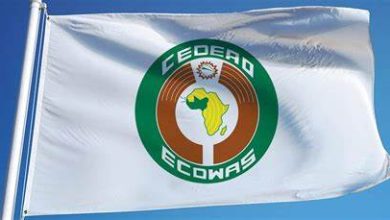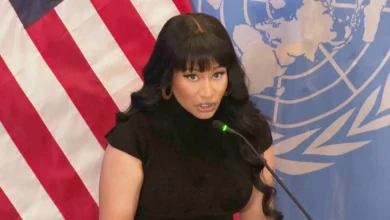
On 22 May 2025, the United States House of Representatives passed the “One, Big, Beautiful Bill Act,” which includes provisions to impose a 3.5 percent tax on money sent abroad by immigrants, effective January 1, 2026, pending Senate approval.
The bill targets non-US citizens, including those on non-immigrant visas and green card holders who remit funds abroad.
If enacted, the bill will directly impact African migrants, who collectively remitted over $100 billion to the continent in 2023, far surpassing the $84 billion in foreign direct investment received that same year.
This is not just another tax policy. It is a direct threat to African families, communities, and economies. For a lot of African families, remittances make the difference between being poor and being stable. The World Bank says that remittances to sub-Saharan Africa hit $54 billion in 2023.
This is more than twice the amount of foreign direct investment (FDI) in some countries. In places like Nigeria, Kenya, and Ghana, money sent home by people living abroad keeps small companies going, kids in school, and families fed.
Unlike foreign aid, which is typically tied to political conditions, or FDI, which mostly helps corporations, remittances flow directly to the people who need them most. Remittances are not luxury payments; they are how many on the continent pay school fees, cover medical bills, support relatives, and start businesses. As seen, in several African countries, remittances are more dependable than both foreign investment and international aid. This tax will affect both vulnerable families and African economies. If the U.S. goes through with this plan, African governments should make smart decisions to keep their people and economies safe.
Despite their centrality to Africa’s economic fabric, major continental institutions have remained largely silent – a silence that is as conspicuous as it is troubling. The African Continental Free Trade Area (AfCFTA), the African Union Commission, and regional bodies like ECOWAS, SADC, the East African Community, et al, are yet to issue any public response. It is understood that while the U.S. remittance tax could affect African diaspora communities, it may not be perceived as an immediate threat compared to debt sustainability, climate change financing, or regional security. Yet this rationale exposes a disturbing gap between institutional priorities and the lived realities of millions of African families.
Remittances are not merely a financial convenience; they are a lifeline. In many African countries, remittances contribute significantly to GDP, exceeding foreign direct investment and international aid combined. Yet, they continue to receive insufficient institutional attention.
If these institutions cannot defend the rights of African citizens abroad, then we must question their commitment to the ideals of economic integration and collective advancement. Diaspora remittances support more than households—they sustain trade, create jobs, and fortify national economies. Continued silence from African institutions tacitly permits a policy shift that will reduce remittance flows, increase transfer costs, and disproportionately burden vulnerable households.
The United Nations Office of the Special Adviser on Africa recently observed how digital remittance systems are helping lower costs and improve financial inclusion across the continent. But this proposed U.S. tax would reverse such gains, increasing the burden on African workers abroad and reducing the amount received by families at home.
More importantly, the proposed policy reflects a deeper problem. As African Stream has rightly argued via its post on X, this is not just about revenue. It is about power. The extractive gaze has shifted: from Africa’s raw materials to its labour. Migrant workers have become the new frontier, and through this proposed tax, foreign powers seek to derive income from those sustaining Africa’s development from abroad.
AfCFTA was envisioned to reduce Africa’s dependence on external capital and trade. The African Union, through Agenda 2063, has pledged to promote inclusive growth and harness the full potential of the diaspora. ECOWAS, in its regional frameworks, has emphasized economic integration and citizen protection. But how can these goals be realized when African labor abroad can be taxed by foreign governments while remitting funds to the continent, without challenge, without response?
This is not merely a policy issue. It is a question of principle. If African institutions cannot protect the right of their citizens to support their families without undue interference, then we are not building a self-reliant continent. We are standing idle while our people are taxed twice: first through hard labour, and again through unjust laws.
To safeguard its interests, Africa needs to identify strategies to respond to this policy. Implementing its own policies could yield advantages both in the short term and the long term. Africa has the potential to implement reciprocal tariffs on U.S. money transfers. If the U.S. imposes taxes on remittances to Africa, it would be prudent for African governments to consider implementing comparable fees on American companies such as Western Union, MoneyGram, and PayPal that operate within their borders. These firms generate significant profits from diaspora transactions; implementing a targeted fee could mitigate the financial challenges encountered by African families. Additionally, numerous U.S. companies generate substantial profits from Africa while providing minimal contributions in taxes. African governments ought to enhance tax enforcement on these firms, guaranteeing they contribute their equitable share of funds that could assist in mitigating remittance losses. Additionally, African nations should expedite the implementation of regional digital payment solutions, such as the AfCFTA’s Pan-African Payment and Settlement System (PAPSS), and encourage the use of cryptocurrency-based transfers to reduce the expenses associated with conventional channels. Minimising dependence on systems governed by the U.S. would diminish Washington’s capacity to enforce such taxes moving forward.
Remittances are not a favour. They are earned through sacrifice. They are acts of duty and expressions of care. They must not be treated as a revenue stream by governments that already benefit from the toil of others.
Though the “One Big Beautiful Bill Act” remains under Senate consideration, and some institutions may be adopting a wait-and-see posture, the failure to raise concern risks signalling complacency. It is time for African institutions to speak, not only in defence of diaspora livelihoods but in defence of our collective sovereignty. Silence, in moments like this, is complicity. America is hitting Africa where it will hurt the most through the “One Big Beautiful Bill Act” and Africa must retaliate and protect its interests.
THE WRITERS;
Eric Akuamoah-Boateng is a freelance researcher in areas of Religion, Migration and Politics. He holds a master’s degree from the University of Cape Coast, Ghana.
Kojo Tabiri is a dispute resolution professional. He legal interests include international arbitration & mediation regarding commercial, trade and investment law with a focus on Africa.










